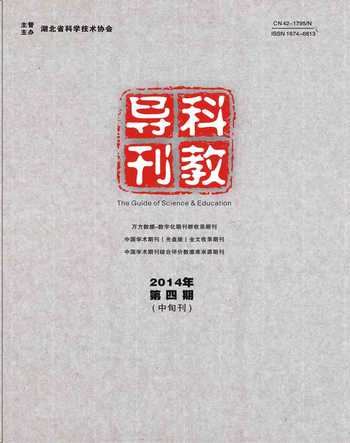涉外民商案件模拟庭审双语教学设计
金彭年 蒋奋
摘 要 模拟庭审是法学实践教学的重要环节。涉外民商案件的模拟庭审包含模拟法庭与模拟仲裁,两者在适用冲突规范、庭审程序等方面又存在明显区别。文中五个案件已经应用于浙江大学宁波理工学院的教学实践并取得较好效果。
关键词 模拟庭审 教学 设计
中图分类号:G424 文献标识码:A
Bilingual Instructional Design of Foreign-related Civil and
Commercial Cases Simulation Trial
JIN Pengnian[1], JIANG Fen[2]
([1] Ningbo Institute of Technology, Zhejiang University, Ningbo, Zhejiang 315100;
[2] Zhejiang University Guanghua Law School, Hangzhou, Zhejiang 310008)
Abstract Analog hearing is an important part of law practice teaching. Analog hearing foreign civil and commercial cases include Moot Court and Moot, and there are obvious differences between the two in terms of the applicable conflict rules, court procedures. The paper has been used five cases in Ningbo Institute of Technology, Zhejiang University teaching practice and got better results.
Key words analog hearing; teaching; design
1 管轄权环节
1.1 案件取材
宁波市中级人民法院(2013)浙甬辖终字第218号
1.2 案情摘要
宁波L贸易有限公司(以下简称L)在2011年1月至12月期间,根据美国W公司(以下简称W)下达的订货单,多次以FOB北仑的方式供货。2012年7月29日, W将空白的《加工协议》文本交给L,要求“请签署后尽快发还给我”,协议中包含如下条款:“本协议包含了双方有关加工W公司产品的完整协议,取代以前双方关于此事的所有理解与协议。如果出现本协议条款与任何订货单的条款不一致之处,以本协议为准”及“双方同意,如果无法在10天内解决由本协议引起的或与本协议有关的纠纷时,任何一方可提请国际商会,按照国际商会下的ADR规则进行调解程序,或在双方书面确定的其他期限内,将纠纷提交国际商会,由该商会指定的独任仲裁员,按照该会的仲裁规则进行仲裁。仲裁地点为美国印第安纳州的印第安纳波利斯,ADR或仲裁语言为英语。” L于7月31日在《加工协议》上签字,并于8月1日将协议文本的pdf文档以E-mail的方式发给W,但W未签署传回。10月23日,L以E-mail与EMS邮政特快专递两种方式,将《关于撤销2012年8月1日要约的函》发给W。10月25日,W回复邮件,明确表示不接受L的“撤销”。12月1日,L提起诉讼/仲裁。
1.3 教学安排
向学生提供全套案卷,并将学生分为两组,分别代表L与W,要求起草《管辖权异议书》与《管辖权异议答辩书》,并开展模拟诉讼(中文)、模拟仲裁(英文)庭审。
2 识别问题与法律适用问题
2.1 案件取材
宁波市北仑区人民法院(2012)甬仑商外初字第269号
2.2 案情摘要
美国S公司(以下简称S)于2012年2月,向宁波J贸易有限公司(以下简称J)订购一篇玩具,订货单中要求“这些产品供给A公司,请尽快向我们提供样品以便K先生确认。另外,这些产品要求用木头镶边,作犬牙交错状,上黑漆,顶部贴花,要求用四色彩盒,不加袋子。要求这款游戏玩具用与以前相同的尼龙搭扣,且要求在两边框子上有把手。沙包重十二盎司,其中80%应是河沙,海沙至多20%。这些沙包应漆成红色和蓝色(每色四个)。”2012年11月8日,J提起诉讼/仲裁,要求S支付拖欠的货款。
2.3 教学安排
向学生提供全套案卷,并将学生分为两组,分别代表J与S,讨论以下几个问题:(1)本案应识别为“加工承揽合同”还是“买卖合同”?识别的依据是什么?(2)本案应适用《1980年联合国销售货物合同公约》还是《中国合同法》?
同时要求学生围绕上述问题,起草双方代理词相关部分,并开展模拟诉讼(中文)、模拟仲裁(英文)庭审。
3 缔约能力问题
3.1 案件取材
杭州市中级人民法院(2001)杭经初字第596号
3.2 案情摘要
杭州H对外经济贸易有限公司(以下简称H)于2001年6月6日联系阿拉伯联合酋长国W公司(以下简称W)上海代表处,磋商塑料原料PVCS6558购买事宜。6月7日,W上海代表处向H发送传真件,载明“关于宁波港的PVCS6558,就双方的口头协议,确认如下:品名PVCS6558(伊朗)、价格USD 480/MT CFR宁波,数量991.25吨(+/-5%),包装25公斤袋,交货2001年6月,付款L/C 30 days at sight请贵司书面确认,书面合同后补。”H公司收件后,与左下侧注明“以上条款我司确认,具体事宜到6月11日协商待定”,并当日将传真传回W上海代表处。14日,H告知W上海代表处,由于市场价格走低,拒绝购买货物。7月2日,W将这批塑料原料PVCS6558出售给中化上海进出口公司。11月6日,W提起诉讼/仲裁。
3.3 教學安排
向学生提供全套案卷,并将学生分为两组,分别代表H与W,讨论以下几个问题:(1)H与W之间的合同是否成立? (2)W上海代表处是否有缔结合同的民事权利能力与民事行为能力?准据法是什么?
同时要求学生围绕上述问题,起草双方代理词相关部分,并开展模拟诉讼(中文)、模拟仲裁(英文)庭审。
4 案件实体问题一
4.1 案件取材
宁波海事法院(2006)甬海法商初字第270号
4.2 案情摘要
2005年9月,浙江C控股集团有限公司(以下简称C)委托Free有限公司为外贸代理,与国外买方AJ公司签订买卖合同;11月,Free公司委托台湾H运通股份(以下简称H)有限公司,将货物从宁波运至美国San Juan。11月2日,H向C签发提单,记载C为托运人,AJ为收货人,后H将货物交给长荣公司实际承运。11月2日,宁波G船务代理有限公司签发了以长荣公司未承运人的提单,记载托运人为H,收货人为AJ。AJ拒付货款,C未将正本提单交付。后Free公司联系货物转卖事宜并与下家签订合同。2006年6月,C通过Free公司,要求H公司与长荣公司更改提单收货人,遭拒绝;要求返还货物,仍遭拒绝。C遂提起诉讼/仲裁。
4.3 教学安排
向学生提供全套案卷,并将学生分为两组,分别代表H与C,起草双方代理词,并开展模拟诉讼庭审。
5 案件实体问题二
5.1 案件取材
ELEVENTH ANNUAL WILLEM C. VIS INTERNATIONAL COMMERCIAL ARBITRATION MOOT
5.2 案情摘要
(1)Equapack, Inc. is in the business of packaging many different types of goods for other companies. Medi-Machines, S.A. is a manufacturer of machinery, including dry foods packaging equipment.
(2)Equapack had been packing small quantities of products such as tea, coffee, rice, sugar and the like with older machines for some time. On 24 June 2002 Mr. Donald Swan, Works Manager of Equapack, wrote Medi-Machines inquiring into the possibility of purchasing several new machines to pack “a wide range of”dry commodities into retail packages of 500 grams to one kilogram. Mr. Stefan Drake, a salesman for Medi-Machines, answered on 3 July 2002 with an offer of six Model 14 auger-feeder dry commodity packaging machines at US$65,000 per machine. The price was satisfactory and Mr. Swan accepted the order for Equapack on 12 July 2002.
(3)Although the sale was F.O.B., Medi-Machines was to arrange the shipping for the account of Equapack. Payment for the purchase was made by means of a letter of credit. The account of Equapack, Inc. was debited on 2 August 2002. The six machines were duly delivered on 21 August 2002. They were installed and placed in service on 30 August 2002. During the following month four of the machines were used for packaging a variety of products, including salt. The other two machines were used for all products other than salt. Although the machines worked reasonably well at the beginning, they were slower for most products than had been Equapacks previous experience with similar machines. By the end of the month the machines that had been used to pack salt were showing serious signs of corrosion and could be used only with coarser products, such as coffee beans or rice, and those at a greatly reduced rate. Finer items, such as ground coffee would not pass at all. Furthermore, since the machines were packaging foodstuffs, there was concern that the food itself might become contaminated and it was decided that they should no longer be used.
(4)On 18 October 2002 Mr. Swan telephoned Mr. Drake to tell him of the corrosion. Mr. Drake asked what products the machines had been used for and when Mr. Swan told him the list, including salt, Mr. Drake replied that the machines were not designed to be used for salt.
(5)In his letter of 19 October 2002 Mr. Swan went further and declared avoidance of the contract. He offered the packaging machines back to Medi-Machines. Mr. Drake, in his letter of 27 October 2002, did not refer to the declaration of avoidance. Because of the inability to use any further the Model 14 packaging machines purchased from Medi-Machines, Equapack was forced to purchase new machines from Oceanic Machinery, GmbH at a substantially higher price. Two auger-feeders capable of packaging salt cost US$125,000 each while four auger-feeders for all other products cost US$75,000 each. Shipping and customs cost an additional US$45,500. During the period of two months when Equapack was unable to service the contract for which the packaging machines had been purchased from Medi-Machines, Equapack lost US$42,000 in revenue.
5.3 教學安排
向学生提供全套案卷,并将学生分为两组,分别代表E与M,起草双方代理词,并开展模拟仲裁庭审(英文)。

